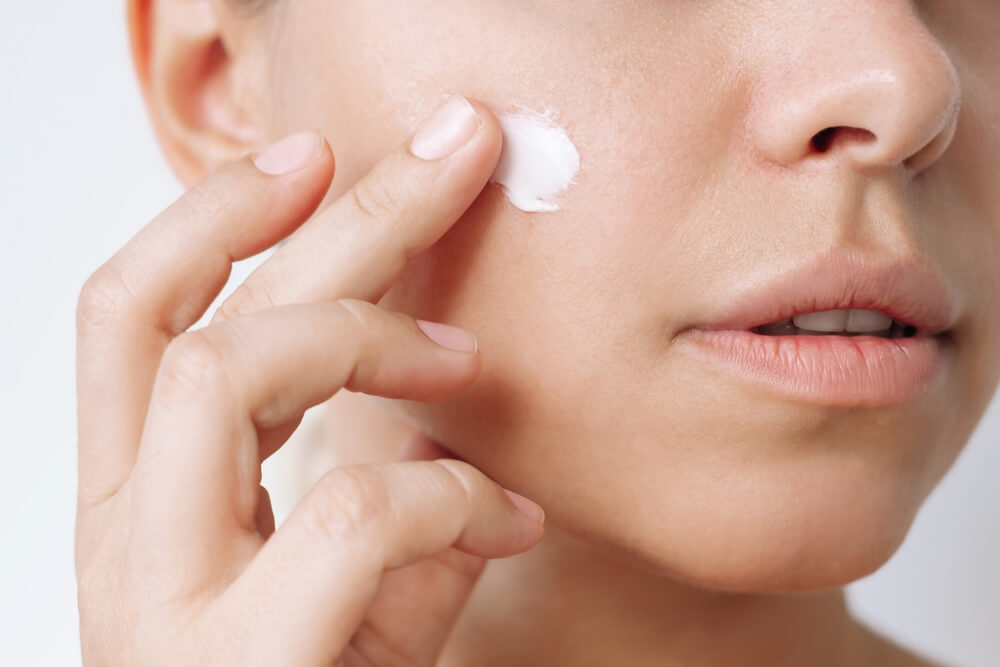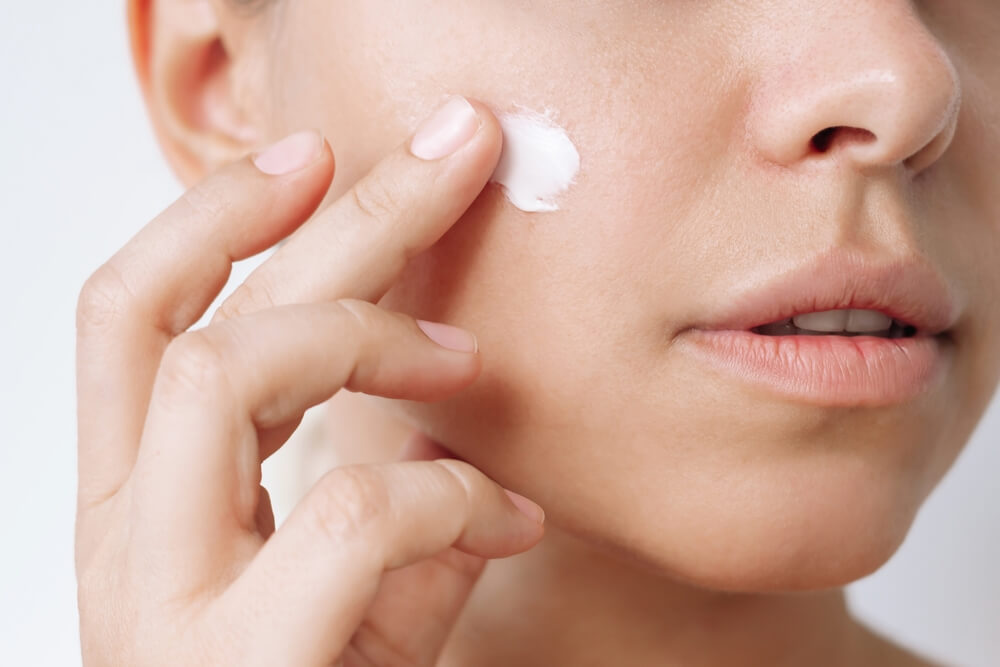Key Takeaways
-
Post-operative skin care also plays an essential role in minimizing complications, maximizing healing time and promoting favorable long-term aesthetic outcomes following surgery.
-
Essential skin care practices include cleaning the surgical area with mild soap, using suitable dressings, applying recommended ointments, and protecting the skin from sun exposure.
-
Keeping the housing clean and ensuring that the animal has good personal hygiene will greatly reduce the chance of post-operative infections. Practice hand hygiene and do not touch the wound.
-
A healthful diet rich in vital nutrients supports the process of skin healing and enhances overall healing. Plus, proper hydration is key to maintaining skin elasticity and avoiding other complications.
-
Consistent follow-up treatment with MDs, DOs, PAs, or nurse practitioners is critical for tracking healing and determining if or when a change in treatment plan is necessary.
-
Early identification of signs of complications is key. When you take control of pain with an individualized, prescribed approach, you’ll have a better recovery experience and a more comfortable one.
Surveys show that almost 40% of patients fail to receive adequate post-operative skin care instructions. I’d learned this firsthand myself following my surgery.
Keep in mind that good hygiene, a balanced diet, plenty of fluids and healing go a long way. It’s not all creams and lotions. Regular visits with your physician help track skin health as part of regular check-ups.
I know when I was going through treatment I remember my doc really stressing this, and it really helped. Healing occurs more quickly in such straightforward circumstances. You will have the satisfaction of seeing that progress week by week.
Skin care after surgery doesn’t need to be daunting. Do these simple things and you’ll recover faster and get back to enjoying life again.
What Is Post-Operative Skin Care
Definition and Importance
In post-operative skin care, these are the basic practices that help your skin stay healed and healthy as you recover from surgery. These practices are even more critical as we work to prevent the spread of infection and promote efficient, effective recovery.
For those with small scars, dermatologist Jeffery Dover suggests keeping the area clean and moist. These routines are custom-tailored for post-surgical recovery. Taking care of your skin goes beyond your overall health — it’s key to improving the aesthetic results after surgery.
If you’re doing things the right way, you’re not only creating healthier skin, but you’re reducing your risk for complications. That translates to fewer scars and a more pleasant healing process, an incredible improvement for anyone out there healing from surgery.
Goals of Skin Care After Surgery
The two major objectives of post-operative skin care are to reduce the amount of scarring and to allow the wounds to heal properly. Maintaining a clean skin surface is the first priority, and a gentle cleansing routine is central to a treatment approach.
Consistent application of ice or cold compresses will help control swelling, particularly within the first 72 hours post-op. Drinking six to eight glasses of water a day will keep the skin hydrated, flushing out toxins and keeping the skin looking fresh and young.
The goal is to reinforce the body’s own healing mechanisms while protecting the skin. Preventing discomfort is the third goal and is just as important—keeping the recovery experience as pleasant as possible.
Keep in mind, sun exposure should be avoided in order to prevent hyperpigmentation, which can happen if the skin is not properly protected. Bruising typically resolves in 10-14 days.
This means no more dangerous downtime. You can get back to your normal skin care regimen—even exfoliants and anti-aging products—in 48 hours.
Essential Practices for Healing
1. Clean the Surgical Area
Cleaning the surgical area is crucial for a healthy recovery. Using mild soap and water, gently cleanse the incision site. It’s important to avoid scrubbing to prevent irritation or damage.
Make sure to clean the area before changing dressings to maintain hygiene. This simple yet effective practice ensures a clean environment for healing.
As Dickie mentioned, “After surgery, less is often more,” highlighting the need for a simplified and gentle approach.
2. Use Appropriate Dressings
Choosing the right dressing for your surgical wound is vital. Different types of surgeries require specific dressings, so follow your healthcare professional’s recommendations.
Regularly changing dressings as advised helps protect the wound from contaminants. Proper dressing plays a key role in safeguarding the healing process.
Dickie emphasizes, “The skin is our defense mechanism. We also need to be constantly taking care of it.
3. Apply Recommended Ointments
The use of prescribed ointments aids in healing and prevents infection. Apply them gently to avoid disrupting the healing tissue.
It’s essential to adhere to your healthcare provider’s instructions on ointment use. According to Dickie, “Using ointment-type medications on suture lines that trap moisture and prevent evaporation aid in healing.
Devgan also recommends, “Applying a protective layer of my vitamin E-rich creams for barrier protection and adequate hydration.
4. Protect the Skin from Sun
Protecting your skin from sun exposure is critical. Use sunscreen with a high SPF on healing skin and avoid direct sunlight to prevent pigmentation issues.
Wear protective clothing or hats when outdoors. As Dickie points out, “Even though you’re not feeling the warmth of the UV rays, you’re definitely still receiving them.
This practice helps maintain skin health and supports recovery.
Role of Hygiene in Recovery
Getting to the bottom of how personal hygiene plays into post-operative recovery is extremely important. Healing Well is an essential element in the healing process and plays an important role in the body’s defense against infection. Maintaining high standards of personal hygiene will allow your body to recover more quickly.
Keeping surgery clean is an important part of preventing the risk of developing an infection after surgery. When you practice good hygiene, you do your part to keep your body healthy and protect yourself from harmful side effects. Fit in preventive measures, such as washing your hands before you go near the surgical site. It prevents infection and ensures the healing process works effectively.
Maintain Cleanliness
Here are a few tips to maintain good hygiene:
-
Wash hands often to keep them free of germs.
-
Avoid touching the wound to prevent irritation or infection.
-
Prevent bacteria from growing by keeping the surgical area dry.
Daily bathing and skincare is also an important aspect of the daily routine. Be careful not to get the surgical site too wet, since excess moisture can delay the healing process. Add an extra layer of protection. If your healthcare provider recommends it, consider using antibacterial soap.
Avoid Infection Risks
Understanding the signs of infection and knowing when to seek help is key. Watch for signs of increasing redness, swelling, or drainage from the surgical site. If you spot something out of the ordinary, you should always err on the side of caution and consult your healthcare provider immediately.
This is where it’s really important to follow all of the post-operative care instructions. It supports protection against risks and supports an orderly recovery. Following the instructions provided by your physician prevents serious complications and helps to ensure your healing process goes smoothly.
Impact of Diet and Hydration
That means nourishing the body with the right nutrients, which is extremely important when it comes to post-operative skin care. A healthy diet, abundant in your body’s vital vitamins and minerals, also helps repair skin and keeps your body in healing mode.
Vitamin B12, iron, and probiotics are the key nutrients that help move things along. For example, vitamin B12 is used in healthy cell regeneration, and iron is necessary for oxygen transport, both important in the healing process. Fiber promotes digestive health, and probiotics help healthy gut flora, aiding digestion and absorption of nutrients.
Including foods like lean meats, leafy greens, whole grains, and yogurt in daily meals can make a noticeable difference in recovery. Getting a variety of these nutrients helps to support healing as well as your immune system.
Nutrients for Skin Repair
-
Vitamin B12: Found in eggs, dairy, and fish.
-
Iron: Present in spinach, red meat, and lentils.
-
Fiber: Available in fruits, vegetables, and whole grains.
-
Probiotics: Found in yogurt, kefir, and fermented foods.
Incorporating essential nutrients into your everyday skincare routine can significantly enhance your skin’s ability to repair itself and prevent serious complications, while supplements can support optimal skin health when diet falls short.
Importance of Staying Hydrated
Hydration is just as critical to an effective skincare routine. Drinking water consistently keeps skin plump and elastic, which is essential for optimal healing of damaged skin. Staying well hydrated can avoid complications such as constipation and is important for a host of metabolic processes.
Sufficient water and fluids also prevent a state of imbalance, lowering the chances of developing hyperglycemia that may impair immune function and lead to other complications. Additionally, taking Omega-3 fatty acids found in fish oils is beneficial for overall skin health.
These fatty acids are vital players in maintaining cellular integrity, especially during the recovery period. Finally, a sufficient fat intake keeps energy stores well-stocked, which is important when healing takes time.
Minerals such as zinc and copper, present in nuts and seeds, contribute to tissue repair and immune function. Adequate hydration and nutrition help ensure optimal skin health support during recovery.
Importance of Regular Follow-Ups
Follow-ups are important. Surgery isn’t the end of the process. They also monitor your progress and detect complications early. Neglecting these routine check-ups can result in not detecting early signs of infection or other complications.
Your doctors will use these visits to determine how you’re doing and whether or not they need to adjust your care plan. It’s an opportunity for them to check and make sure your skin is healing properly. They look for indications of redness, swelling, or any drainage, all indicators in desperate need of escalation to prevent surgical site infection (SSI).

Monitor Healing Progress
Watching for signs of infection at your surgical area is important. You’ll want to be the first to spot any differences in how it looks or works. Journaling these observations is a great way to keep track.
Keeping documentation of your healing also helps make it easier to discuss with your physician during follow-up appointments. If you notice any changes or anything seems off, such as more redness or a different feeling, contact your healthcare provider immediately.
This is particularly important to address for potentially serious problems such as deep vein thrombosis (DVT), which can occur if you have been inactive for long periods.
Adjust Treatment as Needed
Healing often isn’t as smooth as we’d like it to be, so prepare yourself to adapt your treatment plan if needed. Your physician may need to adjust instructions for your care if complications arise.
This flexibility makes room for better outcomes. Staying on track with new guidelines is key to your recovery. Following these guidelines ensures you receive the maximum benefit from your surgery.
It’s not only about applying skincare products properly, it’s also about incorporating them into your lifestyle for long-term skin health.
Additional Tips for Skin Care
Simplicity and gentleness are crucial during the recovery period after cosmetic procedures. Having a regular skincare routine is key to healing and maintaining overall skin health. It’s important to avoid products that are too irritating; instead, cleanse the skin gently and effectively to keep your skin glowing post-surgery.
Preventive measures such as protective barriers, particularly those containing vitamin E, not only help prevent further damage but also promote optimal healing of the skin. These barriers save lives by providing essential hydration. Pairing these with a Mediterranean diet rich in lean proteins and vegetables can significantly enhance your immune system.
Plus, reducing or eliminating alcohol consumption speeds up healing. A humidifier can work wonders, particularly if you live in a dry climate.
Recognize Signs of Complications
Knowledge and recognition of warning signs is key. Signs of an infection include persistent pain, fever, or unusual discharge. Taking a proactive approach to identifying these symptoms can help avoid serious complications.
According to new research published in the Journal of Dermatology, good skincare eliminates 40% of complications. It can’t be too late – early detection and action are essential.
Manage Pain and Discomfort
Effective pain management should be a priority. Avoiding the overdose epidemic by using prescribed pain relief methods is crucial. Prescribed pain relief methods allow for a comfortable recovery.
Gentle methods such as deep breathing or relaxation exercises work best to help with pain, too. Honest conversations about pain with healthcare providers are essential for making the right changes to care.
An easy post-operative skincare regimen complements and enhances the recovery process. Adding a rich moisturizer such as Advanced Recovery Cream blended with Hyaluronic Serum creates a double layer of hydration and protection.
Once cleared by the surgeon, broad-spectrum sunscreen with an SPF of at least 30 should be used on all exposed skin to help protect against sun damage.
Conclusion
When healing after surgery, it’s very important to understand what your skin requires. We know from the natural world that cleanliness, nutrition, and hydration are key factors in allowing your body to heal itself. Consistent doctor visits should be on the radar as well. Every step is meant to help you stay focused so you have a healthy recovery with no bumps in the road. Want to be one step ahead of the game? Keep it simple and heed your body’s signals. Your skin will be ever-so grateful that you did. If you’d like additional advice or have any other inquiries, contact us. Join us, and let’s create a world in which you always feel your best.
Frequently Asked Questions
What is post-operative skin care?
Post-operative skincare is defined as the essential practices to protect and heal the skin after cosmetic procedures. This skincare routine minimizes infection risks and supports optimal healing for patients recovering more quickly.
Why is hygiene important for post-operative recovery?
Good hygiene plays an important role in preventing infections and creating a healing environment, especially during the recovery period after a cosmetic procedure. Being attentive to cleanliness decreases the bacteria present on the skin, leading to fewer complications while following proper wound care.
How does diet influence skin healing post-surgery?
A well-fed body promotes good skin health and repair, essential for an effective skincare routine. Nutrients such as vitamins C and E aid in collagen production that speeds the healing process.
Why is hydration critical after surgery?
Hydration is crucial for optimal skin health support, as it boosts skin elasticity and healing, allowing for a quicker recovery.
How often should I attend follow-ups after surgery?
Consistent check-ins are essential. They also let your physician closely track your recovery and take care of problems early on. Listen to your surgeon as to what interval and adhere to strict follow-up.
What are some additional tips for post-operative skin care?
Don’t forget to follow your surgery skincare tips by using mild cleansers and moisturizers. Avoid sun exposure and wear loose clothing while caring for the incisions as your surgeon advises.
Can I use regular skin products after surgery?
Always check with your surgeon before using any skincare products. Certain ingredients can irritate healing skin, so follow our surgery skincare tips for optimal healing.





